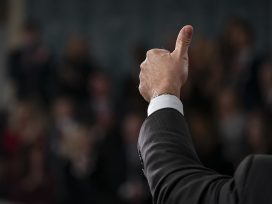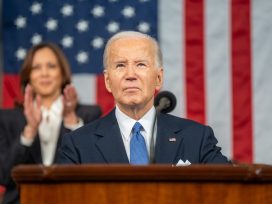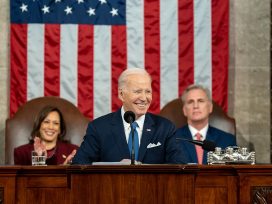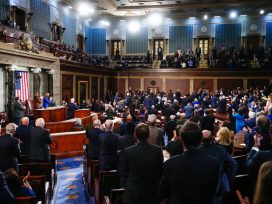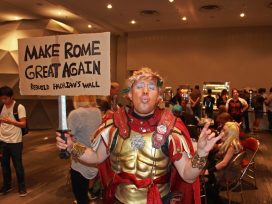Four years ago, Edward Said, the distinguished literary critic and Palestinian-American activist, published an article called “Et annet Amerika” [Another America]. The title referred, quite consciously I’m sure, to a classic 1962 book called The Other America by sociologist Michael Harrington, in which he took the position that even as the US was enjoying unprecedented levels of prosperity, millions of Americans were living lives of profound poverty under the reach of media radar. In his article, Said implied that Harrington’s picture of a divided America was applicable to the country on a political level as well as on an economic one.
Said proceeded to describe one version of America – the mainstream, visible one – as a country that thought of itself as representing
courage, kindness, freedom, economic promise and social progress – an
idea that is so strongly woven into daily life that it no longer sounds like
ideology but rather a fact of nature. America = The Good = total loyalty
and Love.
In contrast to this self-righteous, self-aggrandizing narrative – which Said suggested, among other things, was a way of granting ourselves permission to invade Iraq – was what he called a “forest of discord”, a diverse collection of splinter groups ranging from right-wing isolationists to African-American civil rights activists to radical feminists to anti-war student protesters. In Said’s opinion, all this added up to “a nation permeated with conflict, in which the protesters are more powerful than we are generally aware of”.
Said’s Manichean vision of an America in conflict with itself has been around at least since the Viet Nam War, when those who disapproved of the US military initiative began to separate the actions of the US government from their feelings about the American populace as a whole. Curiously enough, it’s also an image that American politicians from both the Right and Left have appropriated when it suited their purposes: consider Richard Nixon’s view that he represented the “silent majority” of lower-middle class white Americans – also hidden from the media radar – whom the Democratic party of Kennedy and Johnson had neglected for years.
As much as I applaud Said’s effort to shine a light on another, more independent-thinking side of America, I’m not quite sure that this “other America” existed four years ago – even though at that point the opposition to President Bush on a personal level was already strong; and I’m even more doubtful that it exists now, at least in the form that Said presented it.
In hindsight, what is striking is how passive the American public has been from the very inception of the war in Iraq. Obviously a large part of this has to be attributed to the shock of 9/11, but I think that there are other significant factors as well. In the time between the Viet Nam War and the attack on the World Trade Towers, the protest movements that Said cited in his essay lost most of their passion and freshness. Americans became less political, more self-centered, more driven by the pressures of late twentieth century capitalism, so that as much as one would like to think otherwise, the vast majority of the US citizenry simply didn’t react very strongly to the distant war in Iraq, just as they didn’t raise any objections to the invasion of Kuwait or the kidnapping of Noriega in Panama during the presidency of George Bush Senior.
However, there does seem to have been a significant development in the country since Said wrote his article. Whether or not the US was divided four years ago, now in a very curious way it is unified. Americans are not exactly for or against the War, but they appear to be uniformly numb – in a shared state of confusion and quiet despair. It’s a hard mood to put one’s finger on, even harder to describe to outsiders. But the tone of discourse in the US these days is atypically muted, sombre, resigned. A kind of national fatigue has set in.
The Iraq War has taken its toll, not only on the families of those directly involved. War reports are on every major news medium every day. Names of fallen soldiers are printed and intoned on TV news programmes, and the number of daily Iraqi dead is also noted with monotonous solemnity. The President’s recent speech asking for an increase of 21 000 troops was delivered in hushed, clipped sentences, full of pauses – “Mistakes have been made,” he finally conceded – and the lukewarm responses of his commanding generals, to say nothing of those of the Maliki government, seemed startlingly frank in comparison to the spin that the President’s usually alert press team has been able to put on the questionable motives behind the War. Democrats, now the majority party in both Houses, along with some Republicans threaten half-heartedly to fight the troop increases, but the brutal truth is that the Democrats have put forward no cohesive alternate plan. The UK recently announced a pull-back of its troops; now hardly anyone is left in the “coalition”. Even the troops themselves have little to say. In interviews, the usual rhetoric about “protecting American values” and “getting the difficult job done” has been replaced by “protecting our buddies, the guys I’m fighting next to”. The scope of vision has narrowed from the all-inclusive world view that Said described – “America The Good” – to one’s own comrades-in-arms, who are waging a shadow-war against an invisible, undefined enemy.
In short, nobody knows what to do.
I don’t mean to imply that this sense of confusion and resignation has led, or is leading, to a conscious re-examination of our foreign policy or of our public and private institutions. Many here feel that our troops have been unfairly held back from “winning the War”, while others feel that we had no business in Iraq in the first place. But if one considers the flag-waving rhetoric that has been coming out of the US at least since World War II – and which one can probably trace back to the Puritans’ efforts to build the “City of God” on the soil of the New World – this newly-sober attitude is unprecedented, and suggestive of a change in the way the US may start to look at itself, and to be seen. For the first time in memory, nobody in or outside the US believes the hype.
Two schools of thought have emerged about the 11 September 2001 attack on the World Trade Centre. One of these versions – a view supported by many Western European intellectuals – is that, while 9/11 was a heinous act, it shouldn’t have come as a surprise. To use Said’s words again, the attack was an expression of frustration “from a world across the globe driven to distraction by America’s interference and military presence”. If one subscribes to this version of 9/11, one could go even further and join Slavoj Zizek in his Welcome to the Desert of the Real (2002): “September 11 ultimately served as a device which enabled the hegemonic American ideology to ‘go back to basics’ […] to reassert its traditional ideological commitments: out with feelings of responsibility and guilt toward the impoverished Third World, we are the victims now!” Of course the more “mainstream” view of 9/11 is that, as it was the first time that a foreign power launched an attack on the American mainland since the War of 1812, it constituted a fundamental turn in history. As Senator John McCain stated at the 2004 Republican convention: “That day was the moment when the pendulum of history swung toward a new era.”
Actually these two views are not incompatible; both contain a portion of a painful truth. No matter what the positive effects of American-style capitalism and liberal democracy may have been in the last 30 years, it’s hard to dispute that American institutions, especially the actions of American-led multi-national corporations, have helped to create an atmosphere of hostility and resentment in many parts of the world. September 11 can be seen as an extreme expression of that hostility, as well as a sign that things really have shifted, and that the US may have squandered much of its political capital – capital that in the past allowed it to serve, somewhat shakily, as inspiration for fledgling democracies in less developed parts of the world.
The paradox is that as many countries in the West over the past 30 years adopted the worst aspects of American capitalism, the US itself began to look more and more played-out; nowadays it almost seems like an “old” culture. This change is pretty amazing when one considers that the US has always been perceived in the world arena as a big baby, sometimes innocent and spontaneous, sometimes unaware of its capacity for destruction. So, for example, when European friends come to visit New York City, they seem to do it these days for nostalgic reasons: New York looks like the movies and TV shows that they grew up with. Compared with their own major cities – Paris, Berlin, London – New York hasn’t been nearly as modernized by gentrification and the razing of old neighbourhoods to put up stretches of anonymous, interchangeable steel and glass towers: in fact, New York is starting to look like… the Old Country.
There are other signs of aging. American film, television, and popular music regularly recycle the tried and true, as if originality is too economically risky – or maybe simply exhausted. The technological revolution of the last part of the twentieth century in which the US played a central part has now become globalized, and innovations come from any- and everywhere; in areas of technology from cell phone networks to the number of pixels in TV screens, the US has fallen behind much of the world. And on an ideological level, the US’s most dependable export – its rather amorphous concept of “freedom”– has sadly shrunk to an economic euphemism about being free to amass personal fortunes. A book like the international best-seller After the Empire (2002) by Emmanuel Todd is written in a dismissively anti-American tone very different from that of the European radical Left of the 1970’s; in those days America was considered, if not sacrosanct, then so powerful that its faults had to be attacked head-on.
Obviously I’m exaggerating the shift both in world opinion and the actual position of the US in the international scheme. By any measure, the US remains a hugely powerful world force, both militarily and economically, and still attracts literally millions of immigrants each year. But the fact that much of the world – and now what seems to be a growing percentage of its own population – is losing faith in its rhetoric does start to make the country look like an over-the-hill imperium. What everyone from conservative Republicans to liberal Democrats can and does agree on is that both our educational and health care systems are in deep crisis, and that the ties between the demands of “free market” capitalism and those of public institutions are stretched to the point of tearing apart. Our balance of trade deficit, estimated by the US Census Bureau to be $725 billion at the end of 2005, makes us the largest debtor in the world.
I’m writing this the day after President Bush’s annual State of the Union address, in which a standing President goes before Congress to present an assessment of the past year and a summary of his plans for the year ahead. This year the speech was uncharacteristically timid. The President looked tense as he approached the podium, and it took him 20 minutes to get to a discussion of the War, in which he used qualified language like “This is not the fight we entered in Iraq, but it is the fight we are in […] it is still within our power to shape the outcome of this battle […] Our country is pursuing a new strategy in Iraq, and I ask you to give it a chance to work.”
The most interesting moment came when the President introduced a New York construction worker who had jumped onto the subway tracks a few weeks earlier to save a man who’d had a seizure. Wesley Autrey’s gesture was a selfless act without any thought of financial gain, vanity, or even of much hope of survival. Everyone in the chambers of the House of Representatives seemed overjoyed to be able to cheer what had to be the existential opposite of the ill-considered, vain, and arrogant invasion of Iraq.
